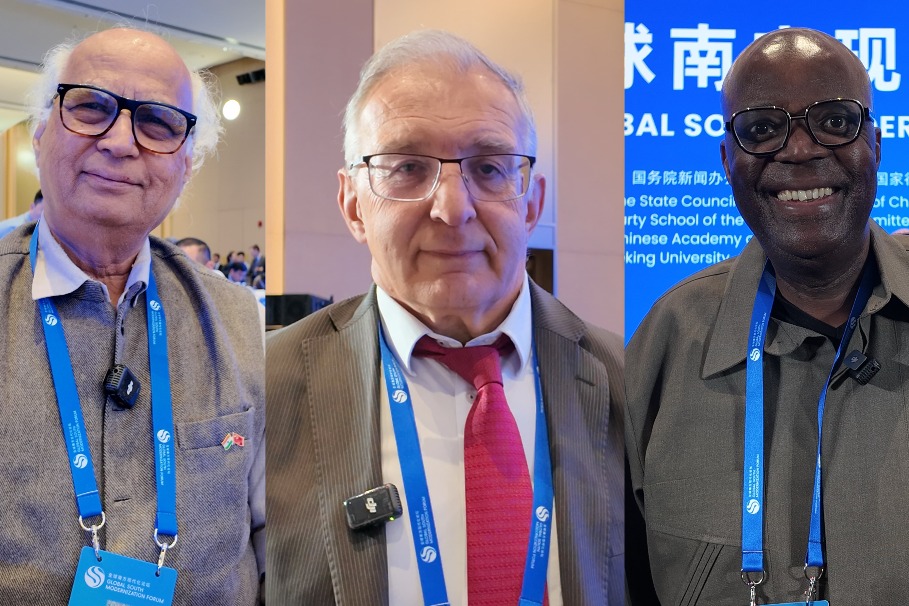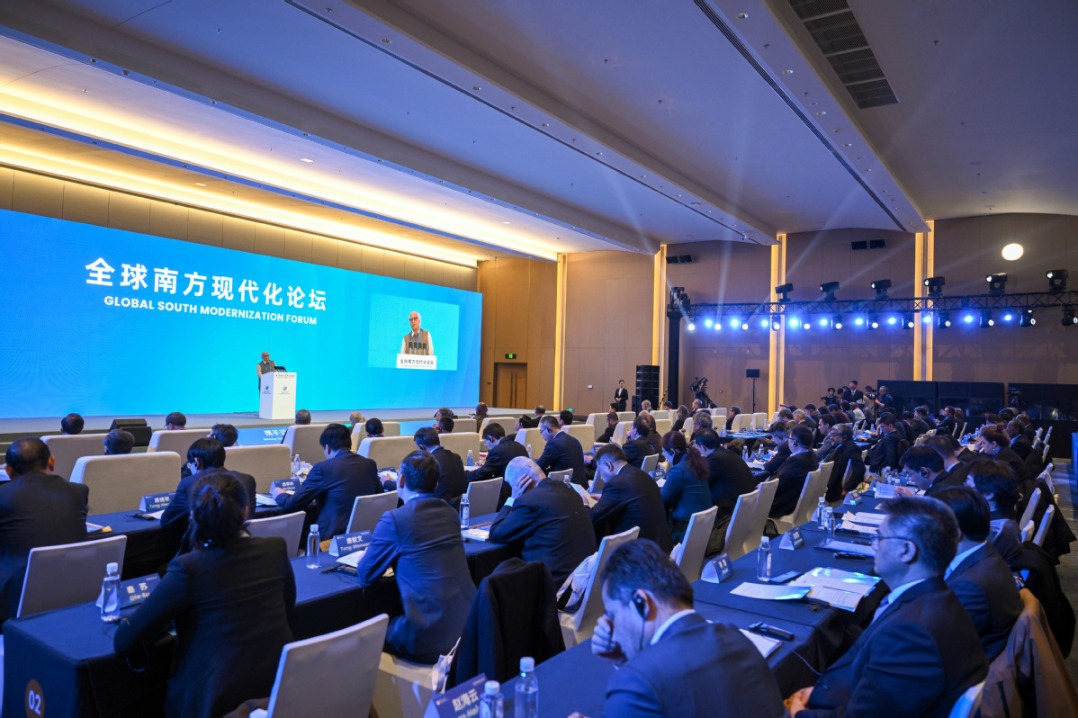Reduce poverty and protect human rights

Editor's note: During the 45th session of UN Human Rights Council, the Permanent Mission of China to the UN Office at Geneva and China Society for Human Rights Studies jointly held a video-linked meeting, "Poverty Alleviation and the Protection of Human Rights", at Jinan University in Guangzhou, Guangdong province, on Sept 21, where some experts spoke on poverty alleviation and human rights protection, including in areas such as the Xinjiang Uygur autonomous region. Excerpts from the speeches of two of the experts follow:
Western criticism tainted by Cold War politics
When the 2019 Nobel Prize for economics was awarded to three American economists for their experimental approach to alleviating global poverty based on their research among poor communities in India and Kenya, some wondered why not China.
For more than 40 years since the launching of reform and opening-up, China has done more than experiment with poverty alleviation work. It has actually alleviated poverty-the country has lifted about 850 million people out of poverty in the past four decades, which accounted for more than 70 percent of the poor population in the world.
Despite the COVID-19 pandemic, China has made all-out efforts to realize its millennium goal of eliminating absolute poverty and building a moderately prosperous society in all respects (xiaokang) by the end of this year.
Yet powerful voices in the West never stop criticizing China for its human rights record, turning a blind eye to the country's remarkable achievements in poverty reduction, which is a major step toward safeguarding human rights. The West tends to forget that if people sink into poverty without adequate resources to live on, even their right to life, the basis of all other human rights, cannot be guaranteed, let alone protected.
The West, the United States in particular, is prejudiced, and obsessed with ideological confrontation because its agenda is to "delegitimize" socialist states and maintain its hegemony in the world. Using the same criterion to measure human rights in all countries, the West regards any country whose human rights practices are different from those of its Western counterparts as a violator of human rights, and immediately launches an attack on it.
The Chinese people have chosen collective political rights over individualism. And by putting people's interests first, China has accomplished more than any other country in poverty alleviation. So the West's criticism of China is not only unfair but also politically motivated.
Zhao Yuezhi, a fellow at the Royal Society of Canada and professor at Simon Fraser University in British Columbia, Canada
Xinjiang residents look for better-paying jobs
The Australian Strategic Policy Institute released a report titled "Re-education, Forced Labor and Surveillance beyond Xinjiang" in March. To verify the claims made in the report, we visited several provinces where multiple enterprises employ Xinjiang residents, including some enterprises mentioned in the report, from April to September.
Through questionnaires and interviews, we found the claims made in the report-prepared thousands of kilometers away from China in Australia-are fabricated.
All the migrant workers from Xinjiang whom we approached had volunteered to work outside the region. Most of them used to be farmers or herders, and decided to work in factories in other provinces so they could earn more money. Family poverty wasn't the reason they chose to leave Xinjiang in search of high-paying jobs, as many of them wanted to broaden their horizon and search for better opportunities in other provinces.
It is therefore ludicrous to stigmatize the Xinjiang Uygur autonomous region's government as labor trafficker. Perhaps information asymmetry is responsible for this, because local officials in charge of human resources usually serve as intermediaries between local residents and outside companies to help the former get better-paying jobs. Also, some Xinjiang people find work outside the region through their relatives and friends who migrated to other provinces before them.
Migrant workers from Xinjiang enjoy the same treatment in pay and promotion as their compatriots from other provinces. And since their employers in other provinces sign labor contracts with them, their hiring is in line with China's labor law and the UN Charter's clause of the right to be free from poverty.
The UN has set "no poverty" as the first Sustainable Development Goal, and the growing number of Xinjiang people moving to other provinces to earn a better living will help realize that goal in China.
Zhang Yonghe, director of the Human Rights Institute, Southwest University of Political Science and Law, Chongqing
Today's Top News
- 15th National Games embodiment of high-quality development
- Lawmakers' thousands of proposals receive responses
- China warns Japan against interference
- Nation's euro bond sale shows investors' confidence
- No soft landing for Tokyo's hard line
- Commerce minister urges US to increase areas of cooperation































